While more entrepreneurs moved by Maharashtra’s deepening rural water crisis are looking for solutions in modern tech and AI, investors feel lack of government support and hackneyed ideas are coming in the way of path-breaking innovation
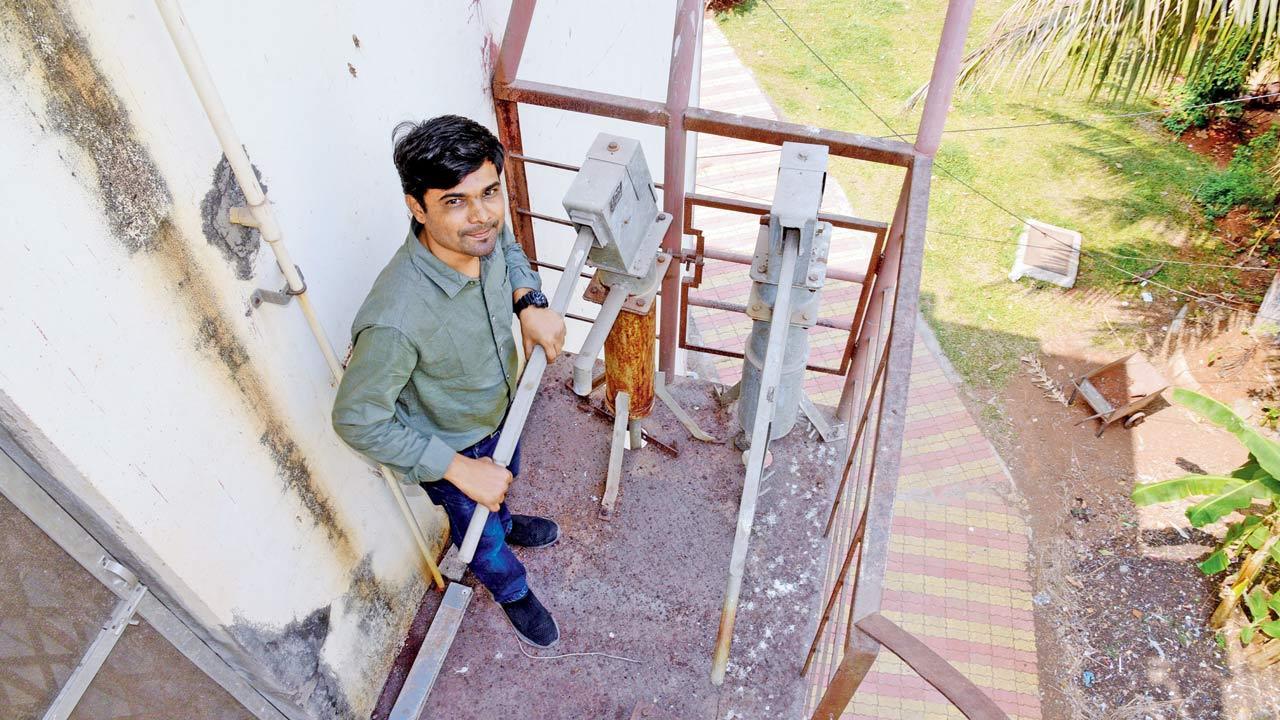
Dr Nilesh Jadhav, co-founder of GermSAFE Technologies, with their water pump that uses hydrodynamic cavitation to create safe drinking water. The team has developed a device that can be retrofitted in the handpumps—where they reduce the local pressure to an extent that the water can boil at room temperature and kill microbes in a matter of nano-seconds. Pic/Pradeep Dhivar
It was his farmer cousin’s struggles in Yeloa near Shirdi, that compelled Pune resident Tarang Patel to come up with a water tech solution six years ago. “He used to grow chick peas and cotton. Due to the erratic power supply there, he was forced to rush between home and farm, four kilometres apart, just to operate the pump for irrigating the field,” recalls Patel, a former sales and marketing professional. In 2018, Patel co-founded Intech Harness Pvt Ltd, an agri-tech startup, which offers technology solutions to problems in farm irrigation. The product on offer is the Jalaprayah Autotech Pump Controller, a patented IoT-enabled microcontroller based intelligent pump controller that responds to power and water disruptions without manual intervention.
ADVERTISEMENT
InTech is one among a growing pool of startups offering water tech solutions in Maharashtra.
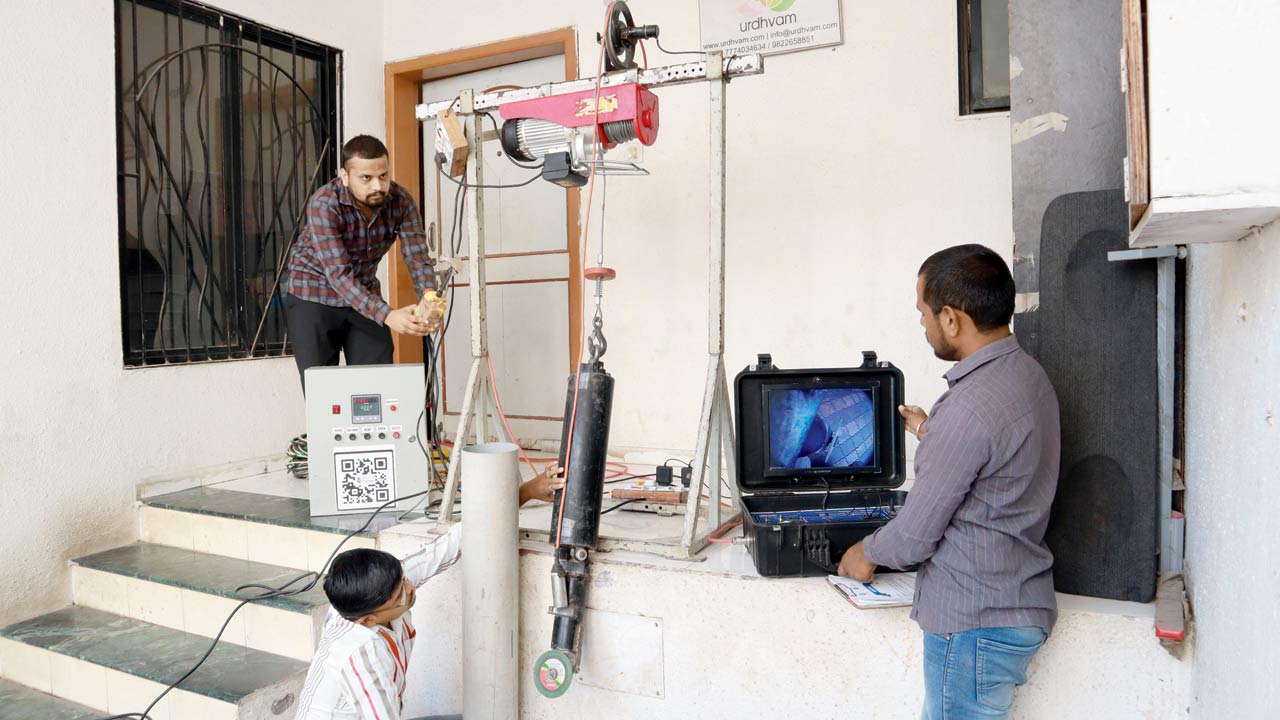 The staff of Urdhvam Environmental Technologies Pvt Ltd in Pune with their innovation used in borewells. “We have developed the BoreCharger that first undertakes ‘angiography’ of a borewell and then at an appropriate depth to carry out ‘angioplasty’ of the borewell using a robotic arm,” says Rahul Bakare, co-founder and director. The cost of this technology, including installation, is anywhere between Rs 25,000 and Rs 35,000 and can be added to an existing bore well to revive it, if it has dried up. Installing a new borewell costs twice the much. Pics/M Fahim
The staff of Urdhvam Environmental Technologies Pvt Ltd in Pune with their innovation used in borewells. “We have developed the BoreCharger that first undertakes ‘angiography’ of a borewell and then at an appropriate depth to carry out ‘angioplasty’ of the borewell using a robotic arm,” says Rahul Bakare, co-founder and director. The cost of this technology, including installation, is anywhere between Rs 25,000 and Rs 35,000 and can be added to an existing bore well to revive it, if it has dried up. Installing a new borewell costs twice the much. Pics/M Fahim
The/Nudge Prize-Ashirvad Water Challenge, which awards innovators working to solve India’s water security crisis, saw a large number of tech companies from the state participate. The total prize grant is Rs 2.5 crore. Out of the seven semi-finalists, one of them is Pune-based Urdhvam Environmental Technologies Pvt Ltd, a water management company that specifically focuses on groundwater. The startup recently launched a patent (applied) tool, BoreCharger, which increases the yield of failed or low yielding borewells. Rahul Bakare, its co-founder and director, quit his job in the software sector, where he had worked for 18 years, to start Urdhvam in 2017. “I was reading about how heavy debts were pushing farmers to die by suicide,” he tells mid-day.
According to data from the Divisional Commissioner’s office, the Marathwada region of Maharashtra reported 1,023 farmer suicides in 2022, up from 887 in the previous year. Since 2001, 10,431 farmers have ended their lives in the region comprising Jalna, Aurangabad, Parbhani, Hingoli, Nanded, Latur, Osmanabad and Beed districts. “While researching about farmer suicides, I learnt that water, or rather the lack of it, was one of the primary reasons why farmers were not able to generate sufficient income and were falling into debt traps,” says Bakare, who spent six years commercially farming pomegranate on 15 acres of land in Nhavara and Shirur Taluka of Pune district, to understand the ground reality of water scarcity better. “People called me a ‘fool’… since I came from an IT software background, they thought I was wasting my time.”
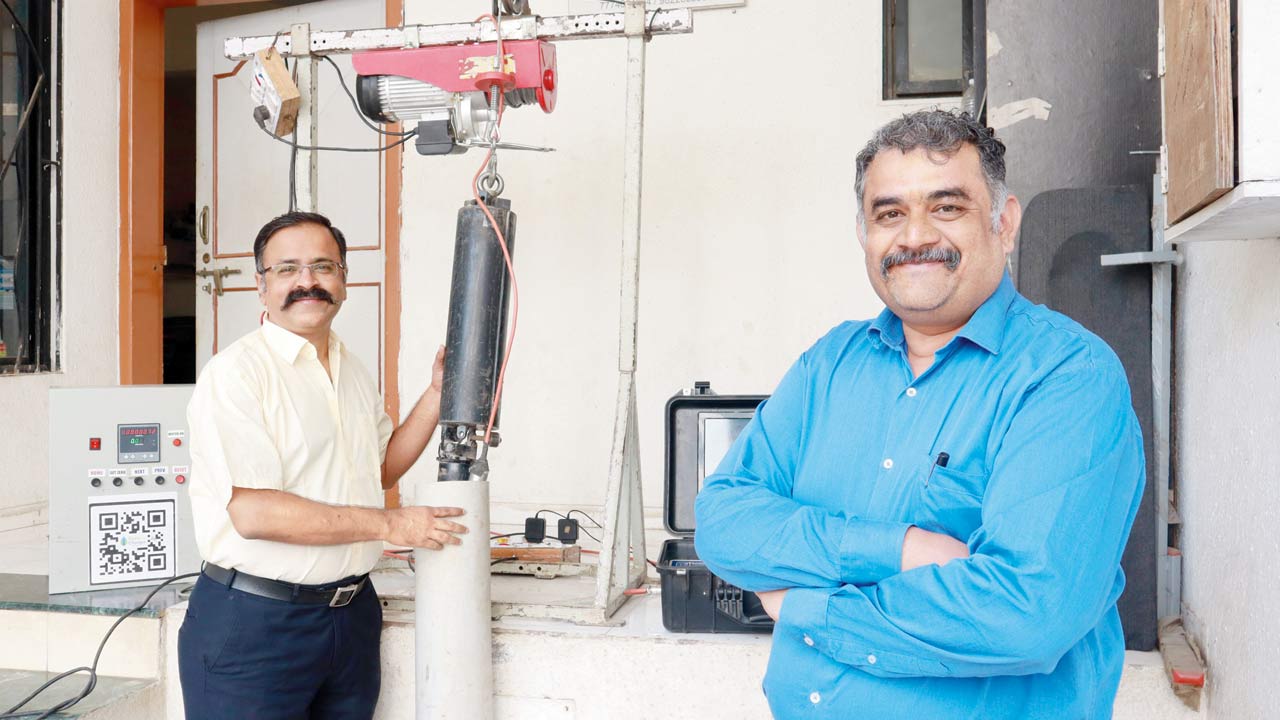 Rahul Bakare and Vinit Phadnis
Rahul Bakare and Vinit Phadnis
After years of research, Bakare realised that, “drilling a hole as deep as 600 feet to get access to water using electro-mechanical pumps to extract the water dries up the groundwater quickly. We have developed the BoreCharger that first undertakes ‘angiography’ of a borewell and then at an appropriate depth carries out an ‘angioplasty’ of the borewell using a robotic arm”. The cost of this technology, including installation, is anywhere between R25,000 and R35,000 and can be added to an existing borewell to revive it, if it has dried up. “The other solution for a farmer is to install a new bore well, which costs close to R80,000.” Bakare, however, says as a country, we should focus on recharge of groundwater than just abstraction. Currently, their technology is used in 12 states across India, and West Africa. The/Nudge team’s mentorship has helped him, says Bakare.
According to Kanishka Chatterjee, director of The/Nudge Prize, the water tech startup ecosystem is seeing a slow, but steady growth in India. “It’s mostly waste water and purification industries which are making investments [in water tech solutions]. This has lent a huge boost to water entrepreneurs, who are exploring the rural market.” Chatterjee says that maximum number of startups are emerging from Maharashtra, Karnataka and Rajasthan. “Those focused on AI are largely from Mumbai, Bengaluru and Chennai.”
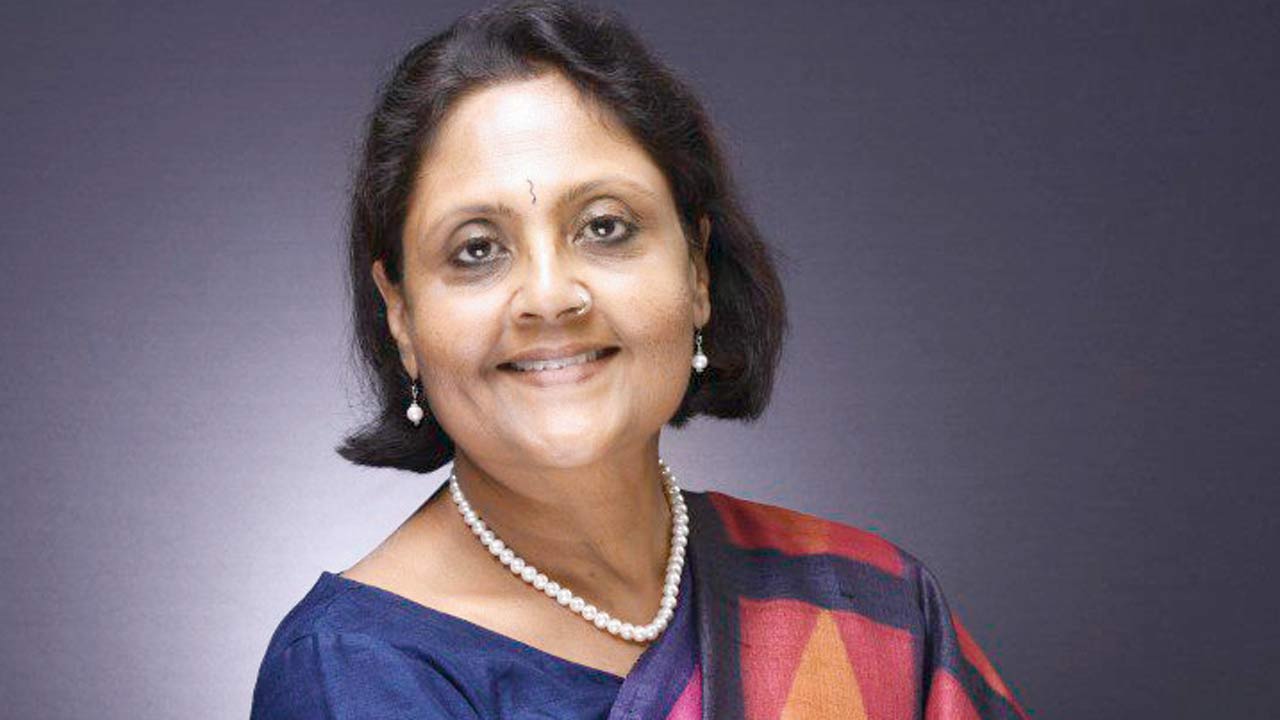 Jayamala Subramaniam, CEO of grant foundation Arghyam
Jayamala Subramaniam, CEO of grant foundation Arghyam
GermSAFE Technology works primarily on developing clean, eco-friendly solutions for drinking and waste water treatment. The startup was launched in 2019, by four innovators—Dr Nilesh Jadhav, Dr Mayur Ladole, Dr Gaurav Dastane and Dr Sarjerao Doltade—all part of the PhD programme at the Institute of Chemical Technology (ICT) in Matunga. Their tech is inspired by Professor AB Pandit, a renowned scientist and Vice Chancellor of ICT. He also works in the field of hydrodynamic cavitation, a process in which high energy is released in a flowing liquid upon bubble implosion due to decrease and subsequent increase in local pressure. It is used to intensify physical and chemical processing applications. The GermSAFE team has developed a device that can be retrofitted in handpumps, and can create a similar phenomenon.
Ladole, one of the co-founders, explains this in lay man’s terms: “As pressure reduces, boiling point reduces, which makes water boil easily at high altitudes. In our device, we reduce the local pressure to an extent that the water can boil at room temperature and kill microbes in a matter of nanoseconds”. “Talking about efficacy,” says Ladole, “we were able to achieve 95 per cent disinfection inside the hand pump.”
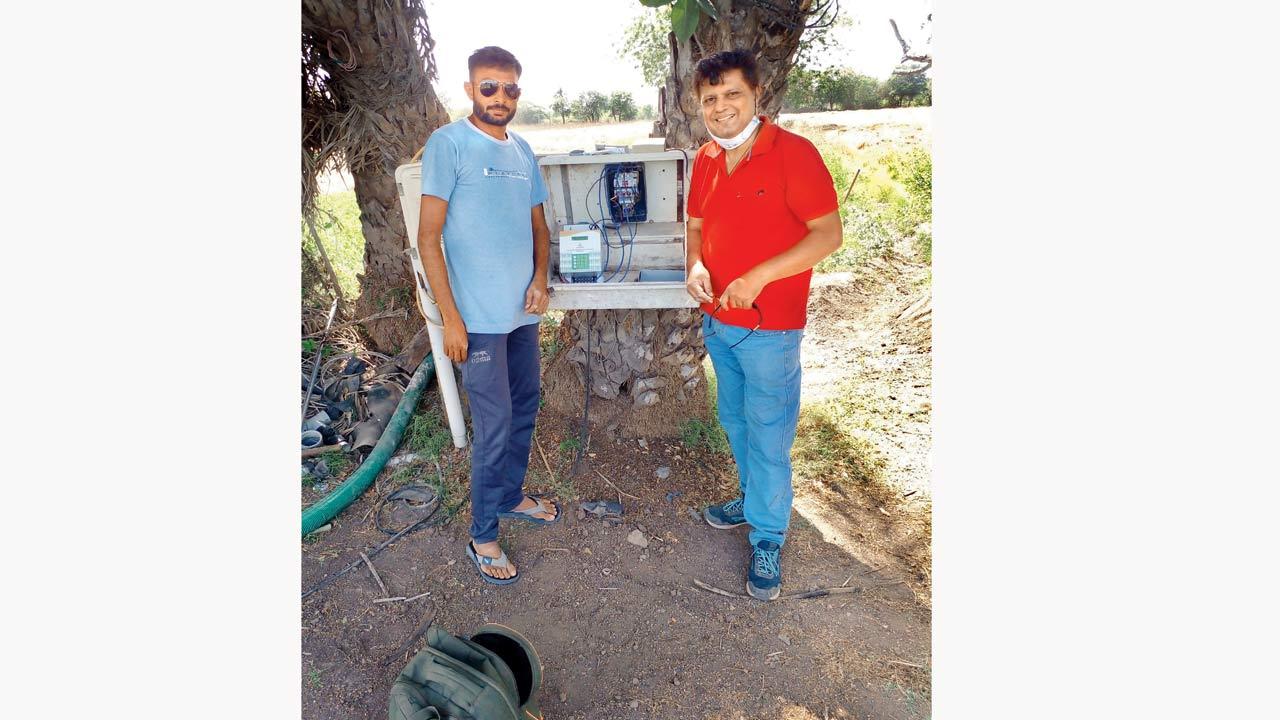 Tarang Patel’s (right) startup Intech Harness has developed a patented microcontroller based intelligent pump controller that responds to power and water disruptions without manual intervention
Tarang Patel’s (right) startup Intech Harness has developed a patented microcontroller based intelligent pump controller that responds to power and water disruptions without manual intervention
Anjan Mukherjee, who started Taraltec Solutions Pvt Ltd in 2017, uses a technology that kills microbes in water using shockwaves via hydrodynamic cavitation. “A small micro bubble is formed and once that collapses, it creates shock waves. We have used this principle for cleaning microbes in water,” says Mukherjee, who runs his startup from Powai.
Mukherjee’s journey in water tech startup began by accident. The Mumbai resident remembers visiting a remote village in Bihar as a stopover to another destination, and noticing the water situation to be problematic. The villagers were grappling with water-borne diseases such as diarrhoea. “It made me think about safe-drinking water.”
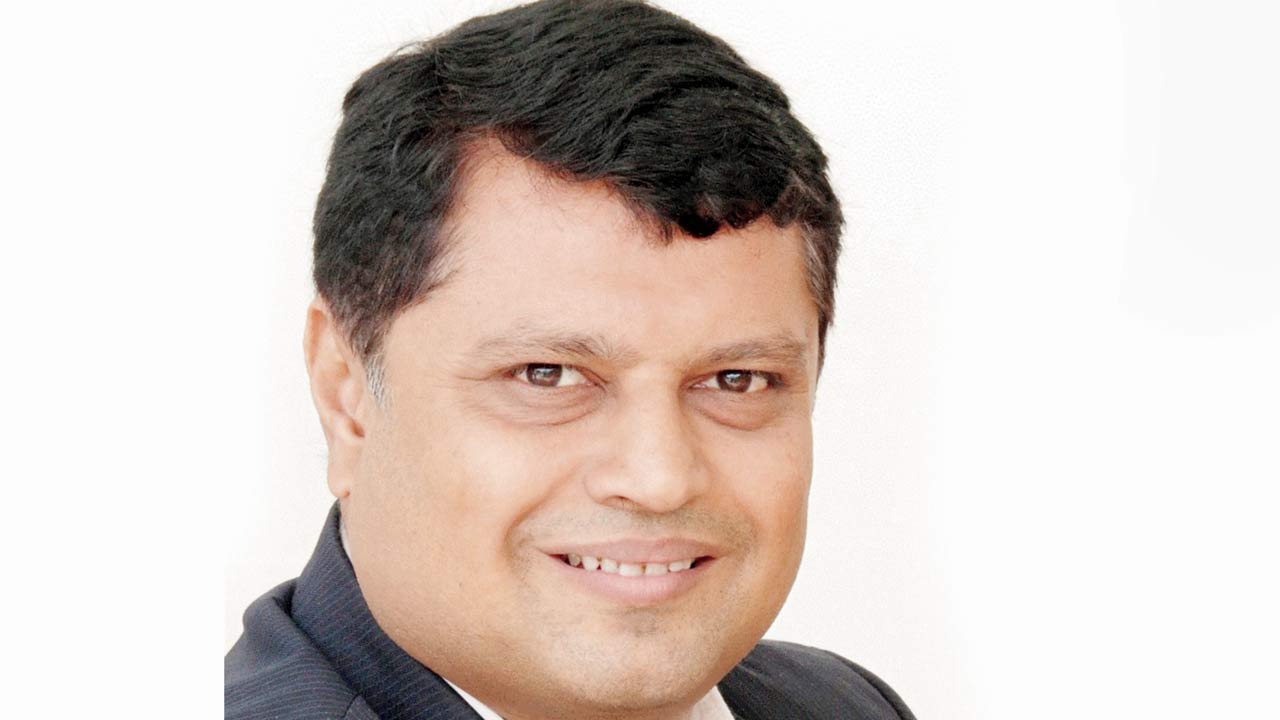 Tarang Patel
Tarang Patel
He feels that government intervention is the need of the hour. “Jal Jeevan Mission, for instance, is a brilliant scheme,” says Mukherjee about the central government initiative that aims to provide safe and adequate drinking water through individual household tap connections by 2024. “It is a game changer, but a huge population under this [scheme] is neglected because they [citizens] don’t have the resources [pucca homes and taps] and money. There is no dearth of money or intention from the government, but remoteness is the main issue”.
Last year, 76 startups were also onboarded under the India Water Pitch-Pilot Scale Start-Up Challenge, launched by the Union Minister of Housing and Urban Affairs (MoHUA) and Petroleum and Natural Gas under Atal Mission for Rejuvenation and Urban Transformation (AMRUT) 2.0. The startups were provided with financial support of up to R20 lakh each to work in the field of water supply, ground water management, used water management and water body rejuvenation.
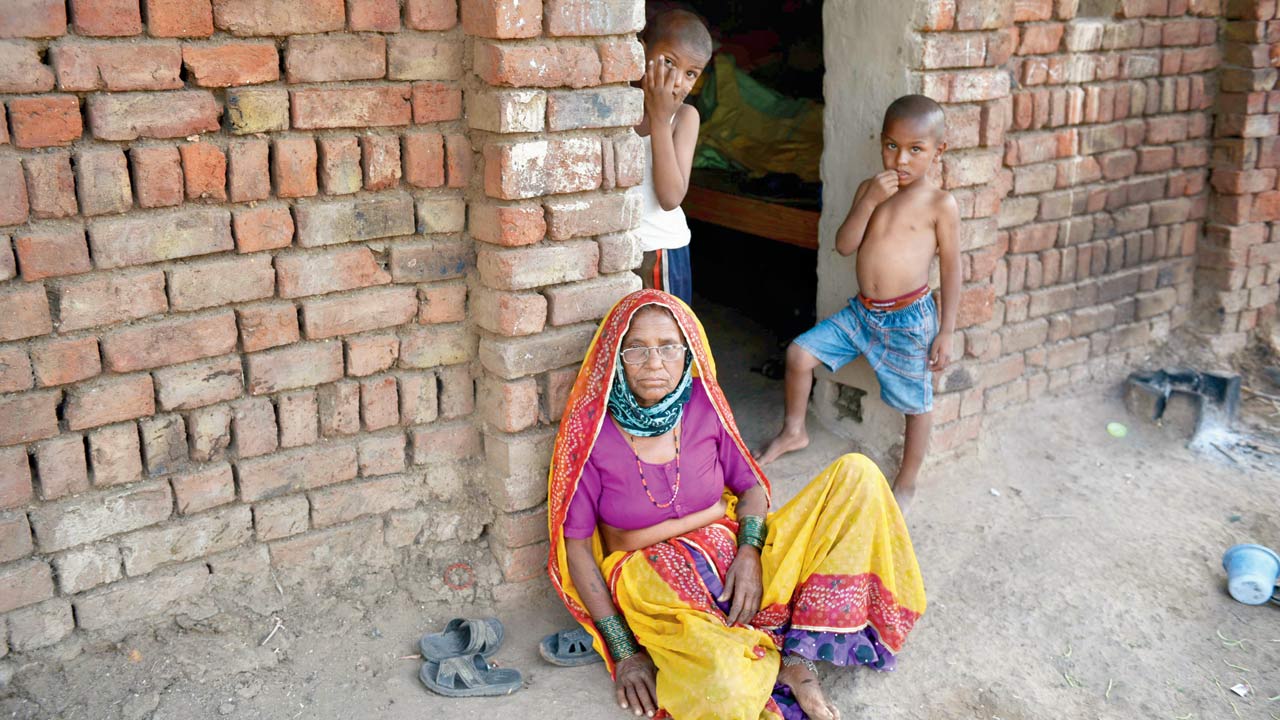 The widow of a farmer from Chaklamba village in Beed, Marathwada, in a file photo from 2016. The Marathwada region has reported 1,023 farmer suicides in 2022, up from 887 in the previous year. Pic/Getty Images
The widow of a farmer from Chaklamba village in Beed, Marathwada, in a file photo from 2016. The Marathwada region has reported 1,023 farmer suicides in 2022, up from 887 in the previous year. Pic/Getty Images
“For the government to provide safe water to all, is a priority and major focus area. But it is challenging because water continues to be an emotive issue,” says Mukherjee. He harks back to the Hindi proverb “Jisne bhi pani mein haath dala, uska haath jal gaya [The one who puts their hand in water, gets burnt].” He, however, commends the government’s resolve to handle an otherwise difficult issue. “With its steely resolve, it will surely succeed,” he says.
Collectively, the challenge for most startups, seems to be awareness and getting the right kind of investments. Some hesitate going to venture capitalists, because they feel they don’t understand the sector. Bakare of Urdhvam says that climate change innovations are currently on everyone’s radar. “Groundwater doesn’t have a dedicated focus per se,” feels the Pune-based entrepreneur.
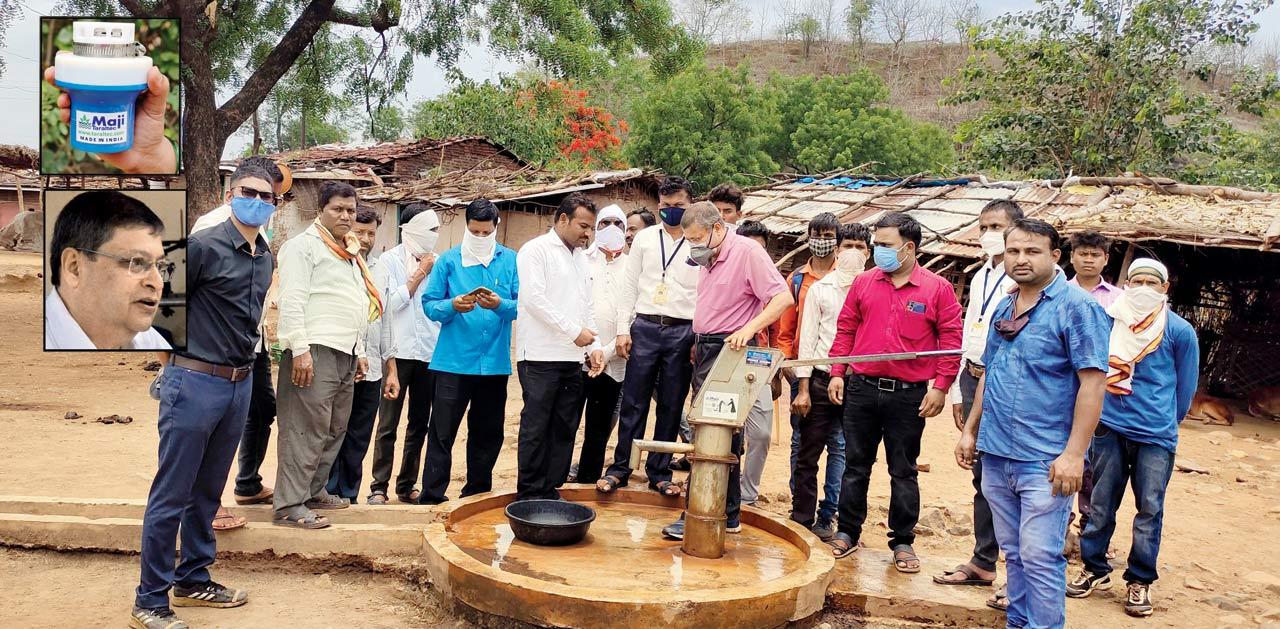 Taraltec Solutions Pvt Ltd has a device retrofitted in the hand pump, which sends shockwaves to kill microbes. Anjan Mukherjee decided to focus on providing safe-drinking water, after a chance to visit a village in Bihar that was grappling with water-borne diseases
Taraltec Solutions Pvt Ltd has a device retrofitted in the hand pump, which sends shockwaves to kill microbes. Anjan Mukherjee decided to focus on providing safe-drinking water, after a chance to visit a village in Bihar that was grappling with water-borne diseases
But, climate tech investor and author, Mridula Ramesh feels otherwise. “I think the investor community is moving ahead of the ideation community.” According to her, many investors are ready to “write a cheque, but we are not seeing as many compelling ideas as we’d like to in the space”. In an experience spanning a decade, she classifies water startups into four broad categories—water quality startups trying to get clean water to rural families; sewage treatment startups that are mainly clustered around Bengaluru offering incomplete solutions, agri-tech startups, and lastly an emerging category that includes water savers and analytics. She thinks there is an urgent need to build upon and expand out of these categories.
Jayamala Subramaniam, jury member and CEO of grant foundation Arghyam, feels that water lacks a clear sustainable business model, “since one needs to consider fairness, equity and inclusion”. “The meta-problem [in water tech] remains one of how we map our water and generate trust, granular data on what is available and of what quality, and who is getting it on a run-time basis. This is the core common infrastructure that is needed, on which we can build solutions. But, this will need non-commercial investment mainly from the state at population scale… we cannot expect this from the markets,” she explains.
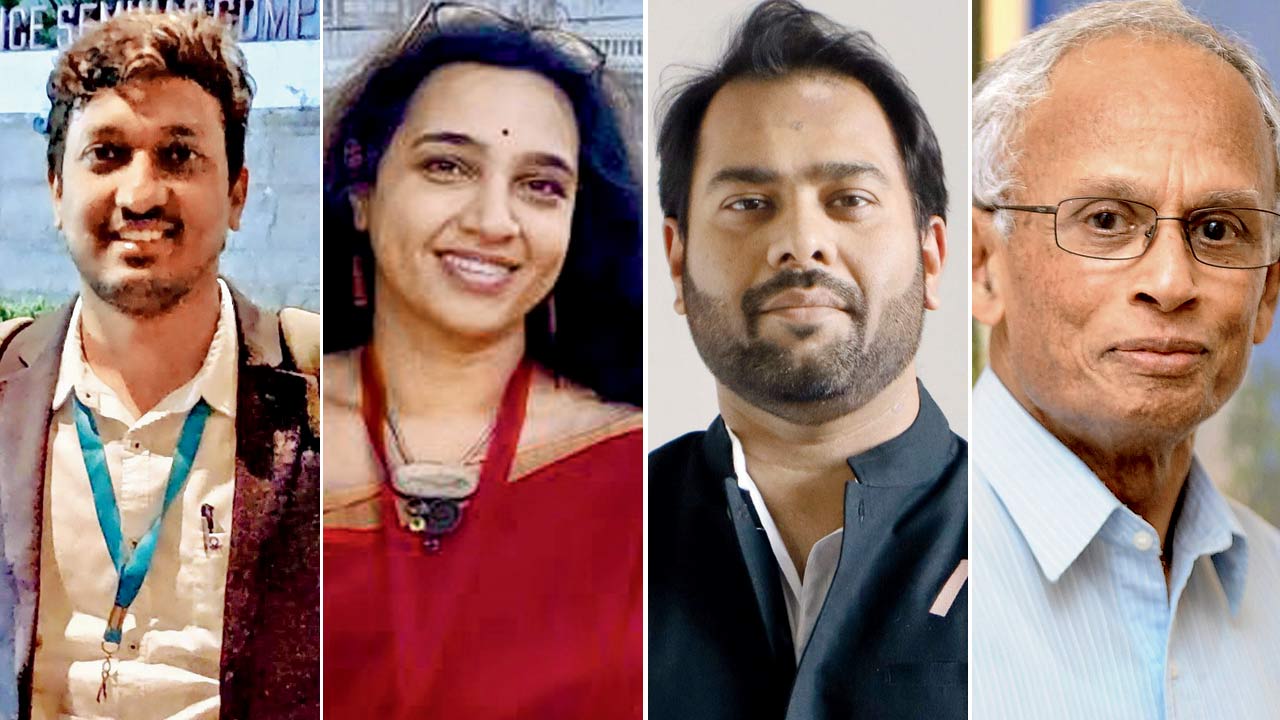 Dr Mayur Ladole, Mridula Ramesh, Kanishka Chatterjee and Asit Biswas
Dr Mayur Ladole, Mridula Ramesh, Kanishka Chatterjee and Asit Biswas
When Ramesh started investing in climate adaptation eight years ago, her preferred space was waste, water and agri-tech. While she had several startups in agri-tech, she recalled not finding many water initiatives despite being ready to invest. Around the same time, Singapore and Israel were churning out a wide array of innovative solutions. The reason, she says, is because India has historically not had a price on water. “If you go and find out how much you pay for water in Mumbai, [you’ll realise] it is too little. For an average family of four, it would cost less than two plates of vada pav.”
According to India Water Portal, the Brihanmumbai Municipal Corporation (BMC) supplies 3.8 billion litres of water daily with a tariff of Rs 5 for every 1,000 litres. “When you are clearly signaling to your business community that this [water as resource] is not going to be valued, why would they come [invest] and start something?,” Ramesh questions. She believes that policy makers are now being forced to go back to the drawing board, as “day zero is getting closer and there isn’t enough ground water left”.
According to Professor Asit Biswas, a leading world hydrologist, “if a serious dent has to be made in improving India’s water situation, the main challenge will be how to reduce water demands from agricultural, industrial, energy generation, and domestic use”. “The problem India faces is that water available in its rivers is already over-allocated, and most likely groundwater withdrawal is making up for higher demands. This is resulting in a steady decline in groundwater levels. India now uses more groundwater than the US and China combined.”
For startups in the water ecosystem knowing their consumer segment and the price point it operates at, will be key in defining their growth, feels Chatterjee of The/Nudge. “A lot of entrepreneurs are innovators first and businesspersons later,” says Chatterjee, adding that they must revisit how they approach their businesses. “Another problem is that almost every water tech startup is doing the same thing—there are still a lot of grey areas in the ecosystem, which are untouched. Innovation needs to run deep.”
10,431
No. of farmers who have died by suicide in Marathwada since 2001. Water shortage is a primary reason for debt-ridden farmers being unable to generate sufficient income
 Subscribe today by clicking the link and stay updated with the latest news!" Click here!
Subscribe today by clicking the link and stay updated with the latest news!" Click here!







